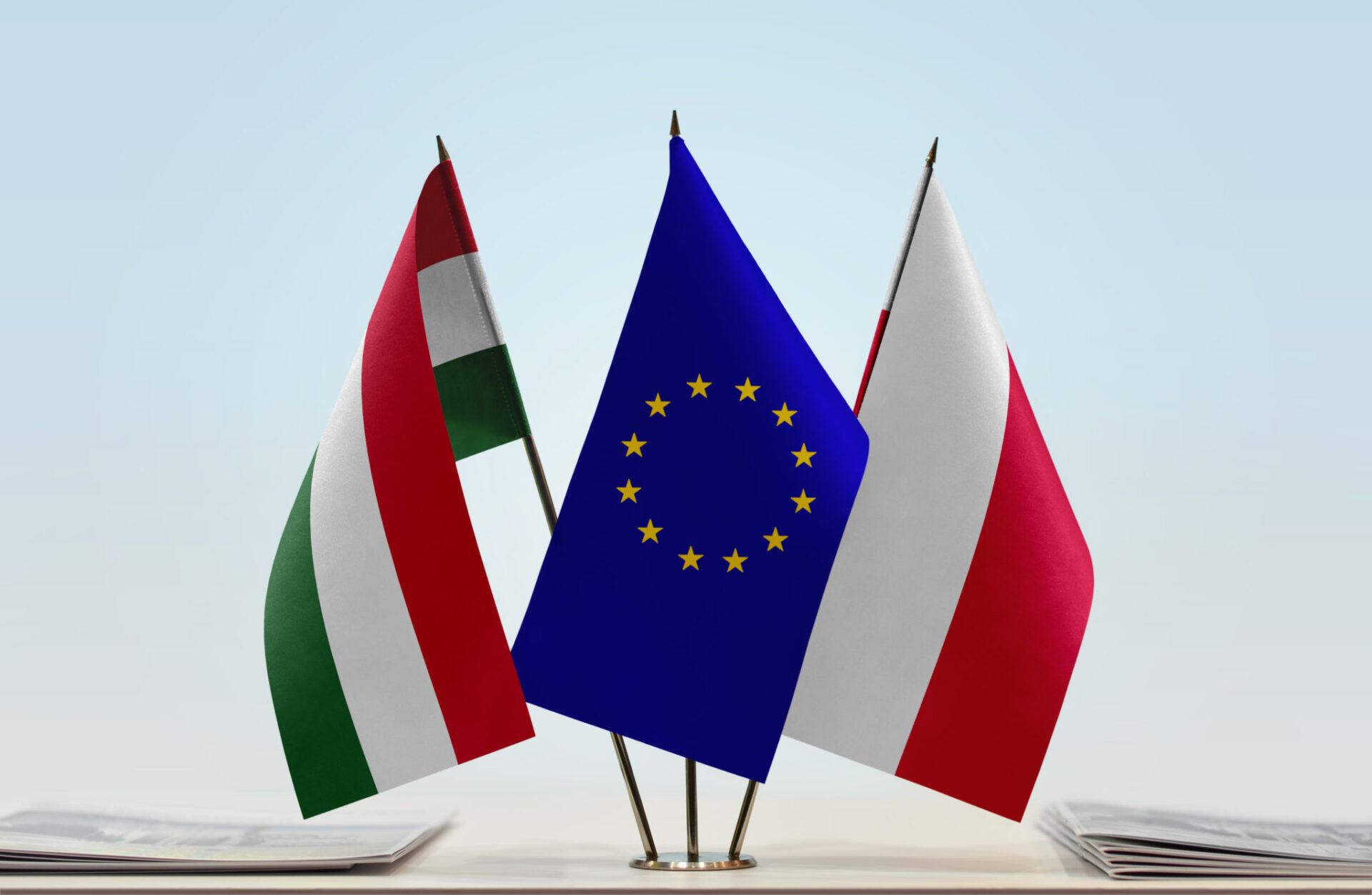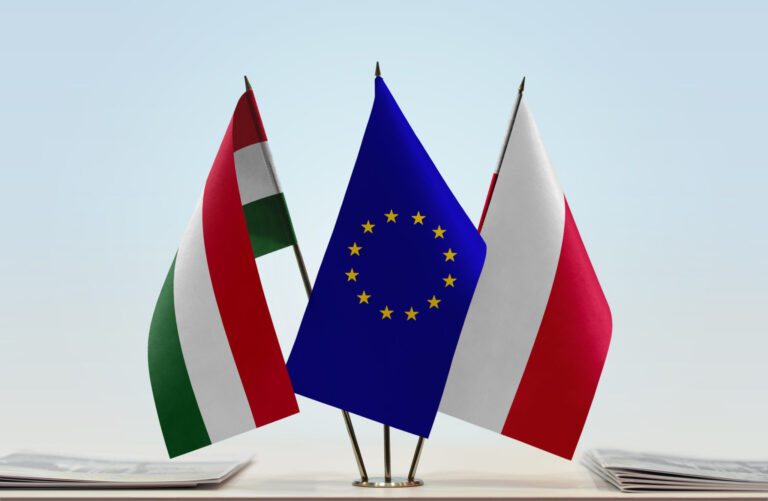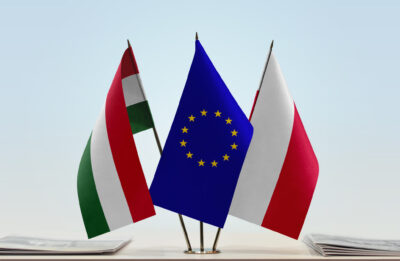Konard Szczygieł: Some analysts claimed, after electing Zuzanna Caputova for the president of Slovakia, that wind of change blows through Visegrad region. But now, once again, we are facing great victories of two populists parties: Viktor Orban’s party in Hungary and Law and Justice party in Poland. Why do you think these two parties are still so strong in the region?
Zselyke Csaky: Fidesz and PiS are successful in no small part due to the fact that they have a clear message and a narrative, something that the opposition, for various reasons, lacks. Now of course, a significant part of this narrative is built on exploiting people’s fears and anxieties but much of it also speaks to the electorate’s concerns, including those around identity or welfare policies. It also helps that the region has been enjoying quite a few good years when it comes to the economy. And more importantly, primarily in Hungary, the ruling party also benefits from a massive media machinery and a slowly emerging patronage system that is crucial when it comes to voter mobilization.
What are the main similarities between these two parties, concerning their approach towards the EU? How would you describe Orban’s and Kaczynski’s vision of Europe?
I don’t like the word “euroskeptic” that is often used to describe PiS and Fidesz (and also more recently the PSD in Romania) and their approach to the EU because I think it’s somewhat misleading. These parties don’t have a clear vision about the EU’s future as much as they have about domestic politics. They are primarily nationalists and, when it comes to Europe, political opportunists. They know that their electorate is disproportionately pro-EU or at least takes the union for granted, and use “Brussels” as a punching bag when convenient. We could see this opportunism on display over the past few months in Poland, as PiS changed tactic and rebranded itself as “euro-realist.”
The question of course is how long it can stay this way. With EU funding set to decrease in the coming years and economic growth slowing down, such anti-EU sloganeering can increasingly fall on fertile ground. For now, people have been voting for Orban and Kaczynski because voting against “far away elites” that want to “stamp on our freedoms” can resonate with people’s frustrations, such as democracy not delivering equally for everyone. But as we’ve seen with Brexit, if someone or something is blamed long enough and fervently enough the message will stick, even if the facts are not fully there.
Was the phenomenon of disinformation and fake-news in Visegrad region visible and significant throughout the EU elections as in the previous time?
From what we have seen so far it looks like home-grown nationalist propaganda, in many cases originating with the governments themselves, played a more important role than any disinformation campaigns run by external actors. And I think it’s time that we refocus our attention on domestic actors and drivers because some of the conversation around disinformation had the unintended consequence of temporarily overshadowing their role and motivations.
Do you expect that in the nearest future, in Hungary as well as in Poland, pro-european opposition will reborn and defeat Orban and Kaczynski? What is the condition of pro-european parties in Hungary? Are there any new players in Hungary’s politics that could make a difference in the future?
The state of the opposition is different in the two countries, for obvious structural reasons. In Hungary, Fidesz has enjoyed almost a decade of parliamentary supermajority during which it has solidified a hybrid system with increasingly autocratic characteristics. PiS has only been in power for four years and it has not had a supermajority (although that did not stop the party from acting as if it had on several occasions). That means that the opposition has a bigger representation, more resources, and more opportunities as well.
But I think it’s not an exaggeration to say that the parliamentary elections in the fall in Poland will be crucial when it comes to reinstating the rule of law and recovering political pluralism in the country. We’ve already seen in Hungary what 8 years in power can mean both for the governing party and its loyalist structures and the opposition. Poland can also learn a lot from the tribulations of the Hungarian opposition, which has not been able to recover from its defeats and damaged legitimacy and has spent several years with ineffectual and draining disputes about whether to join forces or run separately. By now, it’s unclear if that mattered at all because the governing party has such outsize powers and control over the agenda.
The EP elections, however, did see some movement for the Hungarian opposition as well, and the success of the extraparliamentary youth party Momentum can offer some hope for the future. But it takes many laborious years to build up a political party and it’s unclear how far parties can get in the current political system. The way Jobbik has been crushed by a ruthless propaganda machine and administrative fines in the past year or so should at least give us pause.
Do you think it is possible that Orban’s party together with Polish Law and Justice party will join the European alt-right group in European Parliament, which includes Marine LePen’s and Matteo Salvini’s parties? What will be the role of Fidesz and Law and Justice party in European Parliament?
I think we know from past example and the negotiations following the elections will make it increasingly clear that there are limitations to a “nationalist international” in the European Parliament. These parties have different goals and different agendas in some areas and it’s precisely their exclusionary and nationalist approach that makes compromises—which is necessary for a coalition—difficult. The nationalist-populist forces have also performed somewhat worse than expected, which means they are no longer such an attractive option for Orban, for example. Although he himself might have overplayed his hand somewhat and might no longer be in a position to choose.
When it comes to common interests for the region’s populists, however, it still matters that they have allies and that the nationalists and the far right have increased its seats in the parliament. While the so-called “blocking minority” that so many had feared before the elections is not actually a relevant problem, PiS and Fidesz, with conservative allies, can still block attempts at addressing rule-of-law problems at the European level. And that in the long term will be a significant issue for the union.
* Zselyke Csaky is the Research Director for Europe and Eurasia at Freedom House and works on Nations in Transit – Freedom House’s annual survey of democracy from Central Europe to Central Asia. Prior to joining Freedom House, she served as researcher at Amnesty International, the International Service for Human Rights, and the European Parliament.
Konrad Szczygieł is an investigative journalist at FRONTSTORY.PL. Previously, he was a reporter at Superwizjer TVN and OKO.Press. Since 2016, he has worked with Fundacja Reporterów (Reporters Foundation). He was shortlisted for a Grand Press award (2016, 2021) and an Andrzej Woyciechowski award (2021). He is based in Warsaw.







